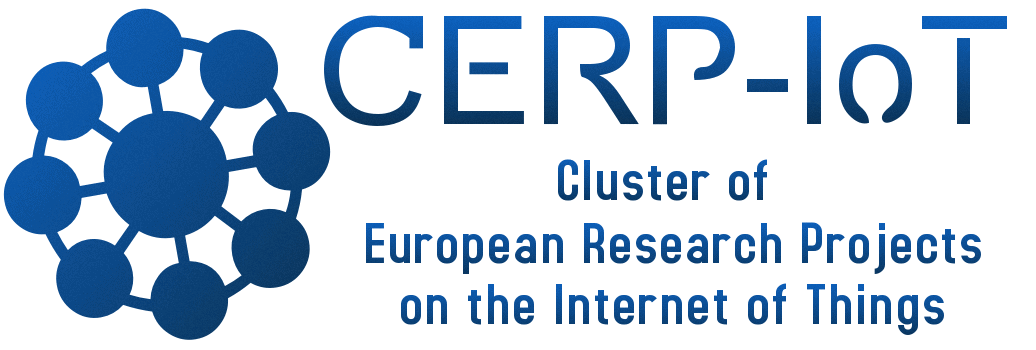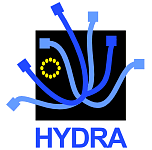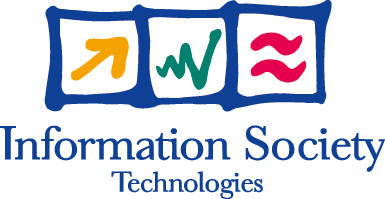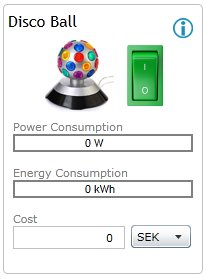Articles Hierarchy
Hydra organises Internet of Things and Services workshop
in Sophia Antipolis from 18th-19th September 2008

The Hydra project, part of the 6th Framework Programme and co-funded by the EU, focuses the development of a flexibly applicable middleware for intelligent and networked embedded systems. The Hydra middleware will be the enabling link between all kinds of mobile and embedded networked devices, thus it will be the source for ambient intelligent networks that will bring intelligent interaction to connected devices. Besides, developer kits will be developed that will enable to create innovative, cost-effective and outstanding applications that will feature access to the entire capabilities of the middleware. The middleware will enable users to optimize their processes by gaining higher efficiency and flexibility. To reach these goals a team of 13 universities, research as well as industry companies is cooperating and working hard to make the vision, to create the most widely deployed middleware for networked mobile and embedded systems that will allow producers to develop cost-effective, innovative applications for new and existing devices, come true.
The concept of the “Internet of Things and Services” is gaining momentum in the emergent academic, industrial and market developments. Many key enabling technologies such as middleware and service-oriented architectures, RFID and sensor networking are available. Based on the seamless integration of embedded networked devices and services, it involves also automatic identification of things and services, communication, service selection & com-position, resolution and invocation of services. The purpose of this concept is to embrace a range of exciting internet-enabled technologies for individual life support as well as an opportunity for commercial and business exploitation of emerging technology platforms. These technologies are to support pervasive ambient intelligence of objects and/or services through 1) context-based computation and 2) privacy-security-preferences-QoS-aware selection, resolution and execution of “smart” service-oriented model-driven systems and services.
However, the envisioned world of Ambient Intelligence and pervasive computing would be closer to realising its full potential if the embedded devices were able to communicate and semantically interoperable with each other so as to cooperate and fulfil tasks. The workshop tackles these issues through theoretical and applied research presentations, prototypes demonstrations and discussion panels that consider the relevant framework conditions.
In this context, several pressing research issues arise:
Therefore, papers presented at the workshop, will cover the following topics:
Overview of the 1st “Internet of Things & Services” Workshop
Since many key enabling technologies are already available such as middleware and service-oriented architectures, virtualisation, RFID, sensor networking, the Internet of Things and Services Concept is gaining momentum. The purpose of the concept is to embrace the range of exciting internet-enabled technologies for individual life/work-style support as well as an opportunity for commercial and business exploitation of emerging technology These tech-nologies are to support pervasive ambient intelligence of objects and/or services through 1) context-based computation and 2) privacy-security-preferences-QoS-aware selection, resolution and execution of “smart” service-oriented model-driven systems and services
Based on the seamless integration of embedded networked devices and services, the Internet of Things and Services involves also automatic identification of things and services, communication, service selection & composition, resolution and invocation of services.
However, the envisioned world of Ambient Intelligence and pervasive computing would be closer to realising its full potential if the embedded devices were able to communicate and semantically interoperable with each other so as to cooperate and fulfil tasks. Therefore this workshop tackles these issues through theoretical and applied research presentations, proto-types demonstrations and discussion panels to enable the exchange of insight between lead-ing researchers and experts in this area.
Programme:
DAY 1 - September 18
9.00am - 9.20am: Opening Address: The Hydra Research Objectives
Dr Markus Eisenhauer, Hydra Middleware Project Coordinator - Fraunhofer Institute of Applied Information Technology
9.20am - 9.50am: Keynote - Research Agenda in Semantic Resolution of Security and QoS for Ambient Intelligence
Professor Atta Badii, Founding Director of IMSS (Intelligence Media Systems and Services Research Centre) - University of Reading
9.50am - 10.35am: Location - based networked Gaming (Waag Society)
Dr Peter Troxler
11.00am - 11.50am: Secure Context Awareness and Context Aware Security
Professor Atta Badii, Adedayo Adetoye, Researcher ; Daniel Thiemert - IMSS, University of Reading
11.50am - 12.30am: Ontology Support for Ambient Intelligence
Dr Klaus Hansen and Dr Weishan Zhang, Research Associate Professor - University of Aarhus
12.30am - 1.45pm: Lunch & Networking
Demo: Location-based networked Gaming (Waag Society)
Dr Peter Troxler
1.45pm - 2.20pm: OSGi declarative service based Limbo
Dr Klaus Hansen, Dr Wheishan Zhang - University of Aarhus
2.20pm - 2.55pm: Advances in RFID Technologies for Secure AMI
Stephan Engberg, Founder and CEO - Priway
2.55pm - 3.30pm: The Development of a Unified API for Smart Home Systems
David While, Jan Krasniewicz, Sharon Cox
4.00pm - 4.45pm: Trust Modeling Requirements to meet the Challenges of Pervasive Computing
Daniel Thiemert - Intelligent Media Systems and Services Research Centre (IMSS), University of Reading
4.45pm - 5.45pm: Panel Discussion : Architectural Issues and Tools for the Internet of Things & Services
Questions and Answers
DAY 2 - September 19 - Morning only
9.00am - 9.10am: Welcome and Overview of the day’s activities
Dr Markus Eisenhauer, Professor Atta Badii
9.10am - 9.45am: Business Modeling of Emergent Service Opportunities in the IoTS Eco-system
Jesper Thestrup, Chairman Technical Board - The Hydra Project
9.45am - 10.30am: Middleware Security Support for Ambient Intelligence: Identity Man-agement
Mario Hoffmann, Head of the Fraunhofer SIT Mobile Security Research Group
10.30am - 11.40am: Demos by the Hydra Consortium:
-Facility Management remotely sensed and reported faults and remotely authorised maintenance visits
-Healthcare Monitoring of Vital Physiological Signs
11.40am - 12.40am: Discussion Panel
Context Awareness and Data Fusion within the Internet of Things & Services Architecture Business Models for Emergent Network Centric Services
12.15 am - 12.30am: Conclusions and information about future events
Co-chairs: Atta Badii, Mario Hoffmann, Markus Eisenhauer
Registration for the workshop click here.
Download the Hydra newsletter here.





 The Hydra project is co-funded by the
The Hydra project is co-funded by the 


